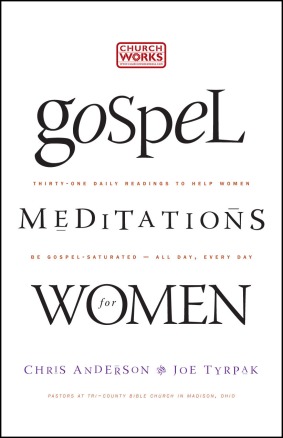 A few years ago I signed up for email updates to alert me of new articles from ChristianityToday.com. What was I thinking? Now I have an almost daily source of headaches…and a daily reminder of the folly of evangelicalism’s premises taken to their logical end.
A few years ago I signed up for email updates to alert me of new articles from ChristianityToday.com. What was I thinking? Now I have an almost daily source of headaches…and a daily reminder of the folly of evangelicalism’s premises taken to their logical end.
I’ve been disgusted before (as I mention here and here and here), but today takes the cake. In an article entitled “From Ace to the Almighty,” it discusses the spirituality of films directed by Tom Shadyac. Haven’t heard of him? Well, you’ve heard of his films, the most successful of which is the blasphemous Bruce Almighty.
Silly me. I assumed that the film (among the top-50 grossing films of all time…no pun intended) was intended to mock God and make a buck. But CT’s Eric David explains that it actually is Shadyac’s “clearest version of the love story that is at the heart of Scripture.” He’s serious. Showing just how desperate some evangelicals are to get any face-time for scriptural (?) themes in Hollywood, David exults in Shadyac’s courage:
“Bruce Almighty pulls out all the stops with allusions to Scripture: Bruce walks on water, parts his tomato soup, turns water to wine, and logs on to yahweh.com to check his e-mail for prayers from his aptly named girlfriend/roommate Grace (Jennifer Aniston).”
Today’s offering from CT follows yesterday’s article in which a man explains how God used Brokeback Mountain to help him spiritually. Today’s also includes an explanation from a Episcopal priest as to why he continues serving in his very liberal denomination, even after it voted in 2003 to allow homosexual clergy. As his rationale, he appeals (shockingly) to John 17. He quotes this gem from his friend, Jeffrey Steenson, bishop of the Rio Grande:
“Breaking communion and separating ourselves from the church is ultimately more damaging than the heretical ideas and practices that may have occasioned these actions.”
 So CT, which this year is “celebrating 50 years of God’s faithfulness” is rejoicing in the good accomplished by possibly the two most blasphemous films of the decade, while also presenting the case of church unity despite a little detail like homosexual clergy. Disgusting. Blasphemous. And all this from the publication of early New Evangelicalism…the publication that Billy Graham suggested, Carl Henry edited and Harold Ockenga led as chairman of the board for twenty-five years. The original intent was for the magazine to take a “middle-of-the-road” stance, particularly avoiding “the old, extreme fundamentalist stamp.” (see Promise Unfulfilled by Dr. Rolland McCune, 57-58) I suppose it has at least succeeded in the latter goal.
So CT, which this year is “celebrating 50 years of God’s faithfulness” is rejoicing in the good accomplished by possibly the two most blasphemous films of the decade, while also presenting the case of church unity despite a little detail like homosexual clergy. Disgusting. Blasphemous. And all this from the publication of early New Evangelicalism…the publication that Billy Graham suggested, Carl Henry edited and Harold Ockenga led as chairman of the board for twenty-five years. The original intent was for the magazine to take a “middle-of-the-road” stance, particularly avoiding “the old, extreme fundamentalist stamp.” (see Promise Unfulfilled by Dr. Rolland McCune, 57-58) I suppose it has at least succeeded in the latter goal.
I could mention something about a “slippery slope,” but that would make me sound like an old-school fundamentalist. And we certainly wouldn’t want that now, would we?!
Filed under: Contemporary Issues, Fundamentalism, Ridiculous |










No slippery slope there, Chris! They have already gone over the edge! It’s too late for the slope!
Hey, Doug.
No doubt about that. My point (if I had mentioned the slippery slope, and I chose not to) :-) would have been that where they are today is a far cry from where they began. But “spiritual gravity” took over. It would have been an important warning for our generation of fundamentalists…if I had mentioned it, that is.
Thanks for taking the time to read my article, Chris. I enjoy a vigorous debate after watching a movie, and find this a good way to do the same thing online.
Every film (in the Hollywood system at least) is made to make a buck, then you can go on making more movies, so yes, that was surely one goal. My point was that it took a lot of work for Shadyac to get to even mention a spiritual reality within the unwritten constraints of the industry moguls. So he had to show that he could make a buck with less personal stories so that he could parlay that success into exploring something more spiritual. And if the film mocks anything it’s egotistical complainers, not God.
If you filmed the story of Jonah, you might find a lot of blasphemous thoughts in the film itself at moments (Shayac’s point in the quote from his interview), and if you filmed the story of Job, you’d have some disgruntled complainers spewing blasphemy for chapter after chapter, complainers who have egg on their face in the end when confronted with the Almighty. Bruce Almighty is low comedy, to be sure, in comparison with Jonah and Job’s subtle Jewish irony, but that does not make it unworthy of conversation.
But it’s not “desperately finding face time for Scripture in a movie” when the director openly professed his faith, reflected on his reading of both the Bible and theology, and discussed his prayer life and spiritual journaling practices.
Whether or not you find the film uplifting or blasphemous or just plain silly, there’s no disgrace in thinking on whatever is good, true, honest, lovely and loveable in it, as Paul must have done with the Greek plays he saw. The slippery slope he was on must have been steep indeed.
I don’t pretend to speak for the Brokeback-loving priest. I wanted Crash to win the Oscar and am glad it did. The violent bear it away.
“Bruce Almighty” takes a sinner, turns him into an omnipotent, omniscient sinner (taking away the omnipresence aspect of God’s Power), and allows this sinner to live as a god on earth. Sure, Eric, nothing blasphemous about that! Isn’t that the sin of the Garden? What was Satan’s comment to Eve? To become like God? Pride? That’s what I want to see is a movie about a man who becomes god-like! Somehow, God wants one man named Bruce to know what it’s like to be God! Makes God out to be a complainer! NOT one of God’s attributes!
I didn’t say it’s not blasphemous, the setup and things that happen in it are; blasphemy is not the message of the film, though. Bruce’s pride is his downfall, his humility his salvation.
Eric,
I don’t have time for a long response right now. However, are you suggesting that the blasphemy of using divine powers to make a dog use a toilet or to make a girl’s skirt fly up is okay, because the overall message is that pride is destructive? (I’m sure there are other examples…those were just the “teasers” on the commercial, which was more than enough.)
As for supposedly scriptural or spiritual content, I’d definitely prefer that Hollywood leave the Bible alone and stick to making their money and communicating their typically humanistic messages with other content. And I’d certainly prefer that a supposedly Christian magazine not celebrate such perversity, as though it is heroic and edifying.
As for going through blasphemous material like “Bruce” in search of things commended in Philippians 4:8? I’m speechless…which is an amazing development.
BTW, how does CT determine what is “Christian” and what is not? Is there some sort of standard that writers are supposed to use?
Thanks for the interaction. You may be interested in what I believe is a biblical perspective of Hollywood here.
Thanks for the link, Chris. I’ll check it out.
What determines “Christianity” in the filmmaker’s background was a somewhat difficult determination to make. We started with the adherents.com site to determine what directors had made public statements regarding their faith (and they include other religions, so we filtered those out).
Then, within the Christian religion as a whole, Truffaut is a nominal Catholic, Goddard is lapsed. They will not be profiled (not that their films are any worse or less spiritually influential than those “in the fold,” we’re just not going to examine them).
Hitchcock and Bresson were (and Shadyac and Gibson are) devout Catholics. Tarkovsky was Orthodox, Griffith Methodist, deMille Episcopalian. They will be, and you may find those articles hold a lot more validity, so please don’t tune out yet.
Other Protestants like Derrickson, Wenders and Wallace were added to the list. The director of Finding Nemo is a Christian, as is the director of Primer. I’m probably leaving out a dozen more names.
I encourage you to send your feedback to ctmovies@christianitytoday.com both about the series and the article, even though negative.
They do listen to all viewpoints and will most likely post yours.
Eric,
It is my sincere beleif that CT has systematically blurred the lines between the holy and profane (Exodus 22:26). God is not mocked (Galatians 6:7). He is thrice-holy…completely “other” (Isaiah 6:3). There is no one like Him (Exodus 15:11). He doesn’t make deals with men, nor does he laugh at sin (Proverbs 14:9). Men who saw Him immediately fell on their faces. He is not to be trifled with, for He is “a consuming fire” (Deut. 4:24; Heb. 12:28-29). He is so pure that He cannot look upon evil (Heb. 1:13). Indeed, He is so holy that He must punish sin–including the mockery of this film–either at Calvary or in an eternal Lake of Fire (I John 4:10; Ephesians 5:3-6).
I understand that you have a job to do. Were your review published in U.S. News or a similar magazine which made no pretense of being “Christian,” I would be less troubled. But as a professing Christian, Ephesians 5 commands you to have nothing to do with those engaged in sin: don’t be a “partaker” with them (Eph. 5:7-8). Indeed, your columns should be used to reprove such blasphemy (Eph. 5:11), not to spin it in a positive light. Such a stand would take courage, but it would be consistent with Scripture.
CT has further blurred the lines between the holy and profane by calling “Christian” anyone who makes the claim for himself, regardless of creed.
Friend, I believe that you have celebrated a film and filmmaker that are blasphemous…that make light of the Lord and of His name. I expect Hollywood to do that, just as one might have expected the Pharisees, Sadducees and Romans to blaspheme Christ. What I don’t expect is for professing Christians and a Christian publication to be party to it. It’s Judas-like. Strong words, I know, but that’s how strongly I feel.
Thank you for reading here. The recent post on Ryle’s book, Holiness, would be worth a read, as well. Indeed, reading the book would be even better.
Chris
p.s. I will send my original post to the address you have provided. Thank you.
Eric,
You say But it’s not “desperately finding face time for Scripture in a movie” when the director openly professed his faith, reflected on his reading of both the Bible and theology, and discussed his prayer life and spiritual journaling practices.
I am curious as to how genuine time with God in the Bible, theology, prayer, and spiritual journaling results in something like Bruce Almighty? I am no stick in the mud on these kinds of things, but this seems completely out of character for anyone that genuinely does the things you mention.
Is it not true that it is much easier to speak of spirituality than it is to practice Christianity? We have a world full of spiritual people, but very few who actually know Christ. Isn’t hte Bible clear that those who walk after Christ will be different than the world?
Virtually all stories have some sort of biblical theme in them. But should we stoop to that? I don’t think so.
I think Johnston’s book Reel Spirituality gives a good summary of the variety of responses and interpretations that are allowed in film (yes, in virtually all stories since story is the means by which the transcendent tries to explain Himself to us limited creatures), and you (plural) and I find ourselves at different points on the spectrum.
Friend, I am not familiar with Johnston’s book, so I can’t comment on it.
However, I take strong exception with your statement regarding revelation. Perhaps I’m misunderstanding you. When we speak of God’s “reavealing Himself to us,” Scripture indicates that He has primarily done so through Scripture and Christ (Hebrews 1:1-2). Are you suggesting that God reveals Himself to us in the “story” of film, or were you using “story” as a reference to Scripture? I’m not clear on your meaning.
Further, I have no doubt that we are “at different points on the spectrum,” as you say. The question, however, is whether those points on the spectrum are permitted by Scripture. Would you please explain–from Scripture–why movies filled with things which the Bible condemns are not only legitimate as entertainment for the Christian, but are actually useful as tools in communicating truth about God? I would be very interested in your answer.
Thank you for the interacting here, Eric.
Most of the Bible is internally addressed: Jewish writers writing to Jewish audiences about their experience of God. Even in the NT, the writers are almost all Jewish followers of Jesus who, again, are mostly telling other Jews about their experience of God, in the flesh this time.
When the audience becomes external, references to sources outside itself increase: Luke references political current events of the day in the census and names of Paul uses Greek playwrights. The Bible references many uninspired books outside itself as well: http://www.carm.org/bible/booksmentioned.htm
Ryle said he could hear God’s voice nowhere else but in Scripture, capital S, singular. I would claim that I can hear God’s voice in other places (not just speaking about movies here, but great literature, in theology, in communion with other believers, in service to the poor, and many other places. This is not to dismiss your claim to the primacy of God’s revelation through the Bible. I would say, not, sola scriptura, but prima scriptura.
Eric,
Sorry for the delay in getting back to you. Regarding your suggestion that most of the Bible–even in the NT–is “internally addressed,” I’m not seeing it. Example: Paul, a Jew, was perpetually addressing a largely Gentile audience. In fact, the NT goes out of its way to abolish Jew/Gentile distinctions. Though written in a specific historical context, it has universal application. Frankly, I’m not certain how this furthers our discussion.
There really isn’t a question as to whether the Bible cites outside sources. Sure it does. My taking exception with your praising blasphemous movies for spiritual edification was not simply that they are not Scripture, but that they are…well…blasphemous. Watching and praising “Bruce Almighty” because it has divine elements (like a jerk walking on water or turning water to wine) makes about as much sense as commending “The Last Temptation of Christ” because it has a character named Jesus or “Oh God” because Georg Burns is old. Huh? That makes them biblical? We can learn from them?
Regarding your “prima scriptura” position, I’m wondering how it relates to our discussion: are you really saying that we can look to Hollywood for spiritual truth that supplements the Bible? That Hollywood, literature, Christian friends, etc. offer spiritual and edifying information not available in the Bible? I want to be sure I’m understanding you correctly.
Certainly general revelation can teach us some things about God, but nothing that isn’t taught more explicitly and clearly and powerfully in the Bible itself. For example, Scripture clearly claims that God has communicated to us all things pertaining to life and godliness in His Word (II Peter 1:3-4). After addressing the inspiration and resulting usefulness of the Scriptures in II Timothy 3:14-17, Paul charges Timothy to preach IT, and not something else (II Timothy 4:1-4). Of particular interest to one who holds your position (both philosophically and professionally) is verse 4, where those who refuse to hear biblical truth reject it in favor of “myths” or “fables”…worthless stories. (Déjà vu. If that doesn’t describe the love affair between evangelicalism and Hollywood, I don’t know what does.) II Peter 1:16 similarly contrasts biblical truth with useless stories. Anyway, I believe that the sufficiency of Scripture is taught as clearly in the Bible as the inspiration of Scripture. Your denial of the former makes me curious about your position on the latter. What is your view on the issue of inspiration? Do you believe in the inerrancy of Scripture?
Finally, I believe that your “prima Scriptura” position is actually leading you to beliefs that are not just extra-biblical, but our actually unbiblical. (The “prima scriptura” teaching Roman Catholic Church leads it to the same result.) The point is, it seems that your being open to an “all truth is God’s truth” position (assuming that’s an accurate description of what you believe) is actually allowing you to approve of things that are explicity condemned by Scripture. “Bruce,” for example, is seen by you as a helpful supplement to Scripture rather than something obviously forbidden by Scripture. I still would be interested in your answer to this question posed earlier:
Or was your statement of your “prima scriptura” position a way of answering the question by explaining that you need not answer it?
Yes, I find spiritual edification in places other than the Bible, but the Bible is and has always been the light by which I see the truths in the world that are rooted in the God of all truth. I would not be able to discern that truth without it, but that’s not the only place I find it. If there is truth, then it must come from God, because the only thing the devil can do is twist the truth into a lie, even using scripture for that purpose, so scripture can be used to lie about God and non-scripture can be used to communicate the truth about God. He is powerful enough to speak in other means and loving enough to allow his book to be misused.
I would see Peter’s dream of being able to eat all kinds of meat (Acts 11) a good metaphor. Previously the holiness and purity code forbade them something that, with maturity, was allowable. One could choose NOT to consume this meat just as you would choose not to view this picture because you feel it unclean, but another could choose to eat it and be nourished by it without impurity.
This response is about two months overdue, but I don’t want Eric’s post to be the last one here.
Eric, your openness to extra-biblical revelation is…well…extra-biblical. Or better, unbiblical. As I argued above, God has given us in His Word “all things that pertain to life and godliness” (II Peter 1:3-4). To look for spiritual truth elsewhere undermines the authority of Scripture and is wrong, even if the “elsewhere” were not smutty movies.
Peter’s vision in Acts 10 has nothing to do with maturity or holiness or purity. To use it as an excuse for watching perverse movies is ridiculous. Honestly, friend, it’s about the biggest stretch of the Scriptures I’ve ever heard. What’s happening there is that God is indicating his inclusion of the Gentiles into the church. He uses previously unclean animals as an illustration of that point. But the animals were never morally unclean in themselves and are not comparable to immoral entertainment. They had been ceremonially unclean under the OT Law. That ceremonial Law & its types (dietary laws, laws of distinction, the sacrificial system, etc.) were fulfilled by Christ and are no longer necessary. The issue is certainly not that Peter had “matured” beyond such silly rules. The passage has no bearing on this discussion.
The point is, using that passage to excuse things like “Bruce Almighty” is wreckless misinterpretation. Watch what you will, but don’t twist the Scriptures to authorize it.
Better late than never commenting.
I am confused. Exactly where is scripture does Paul make reference to Greek playwrights? It is my understanding of early church history (writings of Tertullian ect) that the early church practiced seperation from the world – which included a VERY clear and strong stance against Roman and Greek plays and other forms of worldly entertainment.
This whole discussion reminds me of a book I recently read, Intoxicated by Babylon: The Seduction of God’s People in the Last Days by Steve Gallagher. In particular, the chapter entitled Indoctrination that deals with how the entertainment industry is wreaking havoc on the body of Christ.